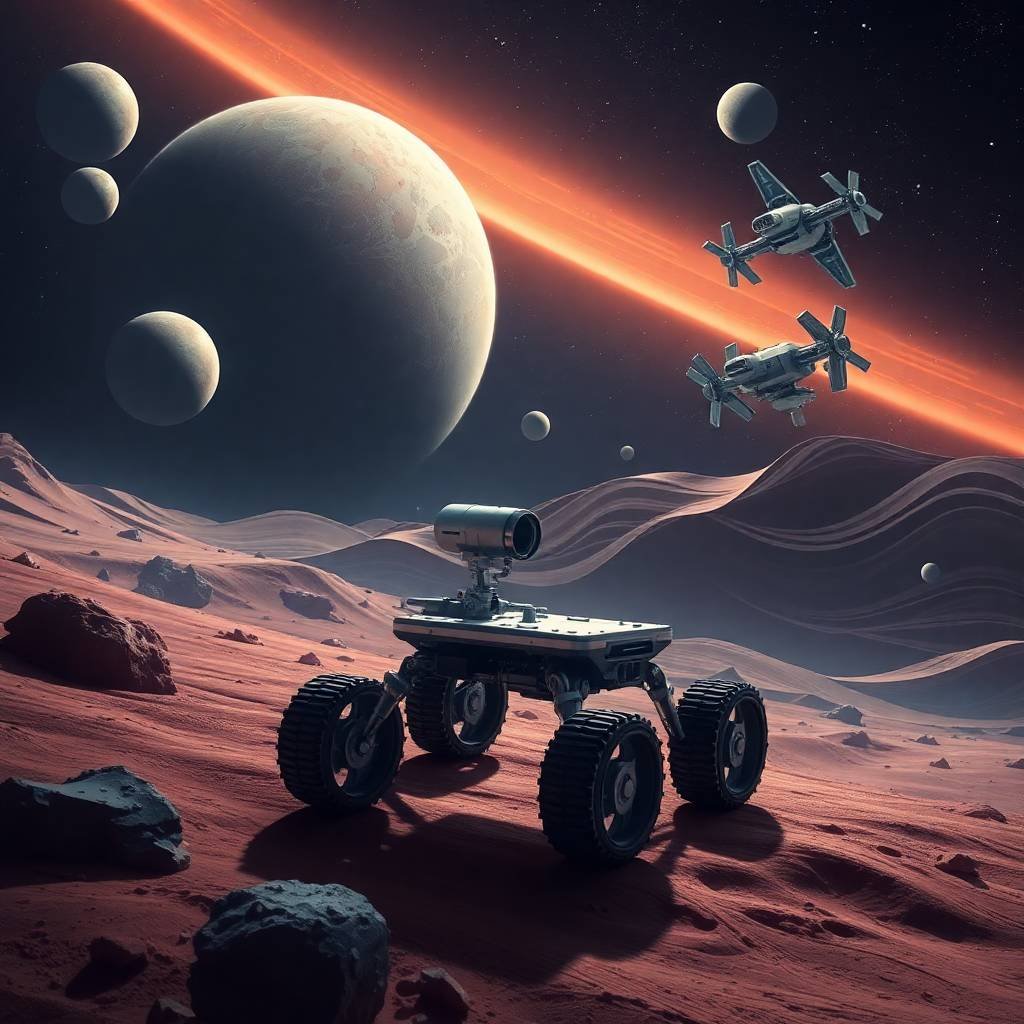Introduction
In the quest to explore the vast expanse of space, Artificial Intelligence (AI) is emerging as an indispensable ally. The complexities of space exploration demand cutting-edge solutions, and AI offers the tools to tackle these challenges head-on. From managing autonomous spacecraft to analyzing massive datasets from distant planets, AI is poised to revolutionize our approach to exploring the cosmos.
Understanding AI’s Role in Space Exploration
What is AI?
Artificial Intelligence (AI) refers to the development of algorithms and systems capable of performing tasks that typically require human intelligence. In the context of space exploration, AI enhances our capacity to process vast amounts of data, make autonomous decisions, and optimize mission performance.
Key AI Technologies in Space
- Machine Learning: This technology enables spacecraft to learn from data and improve their performance over time, crucial for autonomous operations and adapting to new challenges.
- Robotics and Automation: AI-powered robots are essential for performing tasks that are too risky or complex for human astronauts, such as planetary exploration and sample collection.
- Natural Language Processing (NLP): NLP facilitates seamless communication between humans and machines, enhancing mission control and operational efficiency in space missions.
Applications of AI in Space Exploration
Autonomous Spacecraft and Rovers
AI enables spacecraft and rovers to operate with a high degree of autonomy, allowing them to make real-time decisions without human intervention. This capability is crucial for missions in distant or hazardous environments, where communication delays can impede timely decision-making.
Data Processing and Analysis
Space missions generate vast quantities of data that require thorough analysis. AI algorithms excel at processing this data efficiently, identifying patterns and insights that might be overlooked by human analysts. This accelerates scientific discoveries and enhances the overall success of missions.
Mission Planning and Optimization
AI assists in mission planning by simulating various scenarios and optimizing resource allocation. This ensures that missions are both cost-effective and successful, maximizing scientific return while minimizing risks.
Space Debris Management
AI technologies are being developed to monitor and manage space debris, a growing concern for the safety of current and future space missions. By predicting debris trajectories, AI helps mitigate collision risks and ensures the sustainability of space exploration.
Benefits of AI in Space Exploration
Enhanced Efficiency and Autonomy
AI increases the efficiency of space missions by enabling autonomous operations, reducing the reliance on constant human oversight. This allows missions to continue seamlessly, even in the face of communication delays, and improves the overall success rate of exploratory endeavors.
Improved Decision-Making
The ability of AI to process large datasets and identify patterns enhances decision-making, leading to more successful missions and groundbreaking discoveries. AI’s predictive capabilities also allow for better anticipation of challenges and planning of mission strategies.
Cost Reduction
AI optimizes resource use and automates complex tasks, significantly reducing the overall cost of space missions. By streamlining operations and minimizing human intervention, AI makes space exploration more sustainable and accessible.
Conclusion
AI is poised to transform space exploration, offering unprecedented capabilities that enhance our understanding of the universe. As AI technologies continue to advance, they will play an increasingly crucial role in enabling humanity to explore the depths of space, uncovering new knowledge and possibilities. By addressing technical challenges and ensuring ethical deployment, AI can help propel space exploration into a new era of discovery. The future of space exploration is bright, with AI leading the way to unlock the mysteries of the cosmos and expand our horizons like never before.

